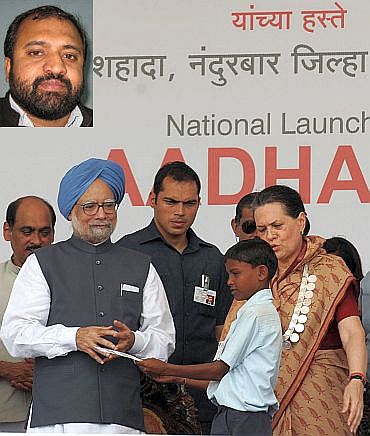
Prime Minister Manmohan Singh and Congress President Sonia Gandhi launched the Unique Identity Number in Maharashtra's Tembhali village in Nandurbar district with much fanfare.
Not even 100 days have passed since then and the opposition to numbering human beings from various quarters of civil society have begun springing out.
Human rights activist Gopal Krishna is one such person in the forefront of this opposition to UID. And he has solid reasons to oppose this numbering of people, which he says has a precedent in Nazi Germany and South Africa, which Mahatma Gandhi vehemently opposed.
Gopal Krishna spoke at length to Prasanna D Zore on what ails the UID project and why he thinks it should be scrapped.
Among other things he says that the UID project is an assault on our Constitution and India's federal structure.
Click on NEXT to read the interview...
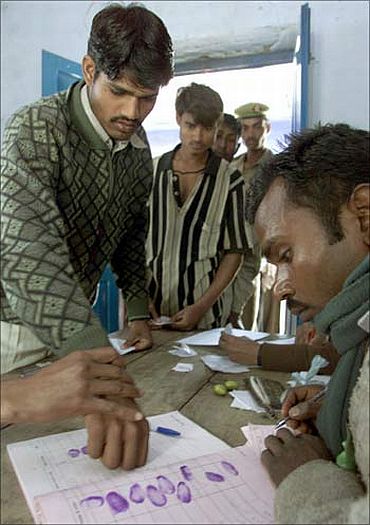
Tell us why you are so sceptical of the UID project? What scares you the most about UID?
UID gives rise to many fears. Any person who knows what UID entails would get scared about the intentions of the project. There are many things about UID that has not been told to the public.
I feel that UID is not a project in isolation. This is a project linked to Draft Land Titling Bill, 2010, Draft Paper on Privacy Bill, 2010, Draft DNA Profiling Act, 2007 and Public Information Infrastructure and Innovations (PIII) for a National Knowledge Network.
Besides this National Intelligence Grid (Natgrid), meant to integrate existing 21 databases with Central and state government agencies and other organisations, and National Population Register (which is quite different from Census) will end up undertaking surveillance, reconnaissance and targeting of Indian residents.
We have found these aspects to be connected with the UID project.
Why do you think were the government not being transparent on these inter-linkages between UID and all the other projects that you believe are linked to UID?
Because the government wants to bulldoze this project in the name of the poor by hiding its true intentions, which is its emergence as a surveillance state under the influence of vested interests.
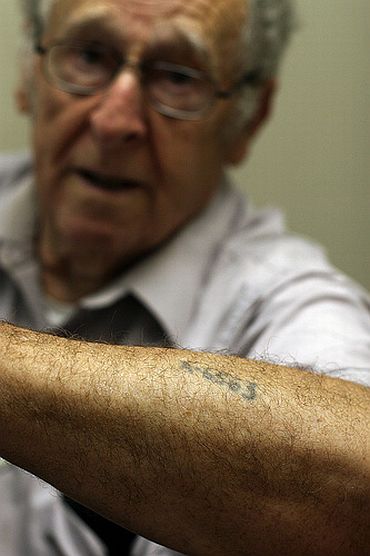
The government wants to simply showcase this project as a means to providing social security to the poor so that it is not deemed unpalatable.
A very famous Italian historian said that all history is contemporary history. When the social security number project started in the US, it was also replicated in Germany.
The social security numbers (SSN) were tattooed on US citizens before (first SSNs were issued in 1935) tattoos were used in Germany under the Nazi Party. The US numbering programme was known as the "social security" programme, or SS programme.
The Unique Identity Number (UID) project in India is being promoted under the e-governance programme. The German Nazi Party's tattoo programme was operated by the social security (SS) division, which had learnt it from US.
In fact, the infamous Auschwitz tattoo began as a number provided by IBM (International Business machines), a US multinational computer company. IBM now claims that it had no control over its subsidiaries in Germany after the Nazis took control of them.
What if a similar situation emerged in India, which is not unlikely after UID database is ready? The UID project is going to do almost exactly the same thing, which the predecessors of Hitler did, else how is it that Germany always had the lists of Jewish names even prior to the arrival of the Nazis?
The Nazis got these lists with the help of IBM, which was in the 'census' business that included racial census that entailed not only count the Jews but also identifying them.

At the United States Holocaust Museum in Washington, DC, there is an exhibit of an IBM Hollerith D-11 card-sorting machine that was responsible for organising the census of 1933 that first identified the Jews.
The government of the day cannot guarantee that in future, when the Nazis or some such sort come to power in India, they would not have access to UID database for vindictive measures against certain sections of the citizenry.
This is evidently the journey of 'identification' efforts from January 1933 to January 2009, when the UID Authority was announced.
The UID and National Population Register is all set to do what IBM did in Germany, Romania and in Europe and elsewhere through 'solutions' ranging from the census to providing list of names of Jews to Nazis.
This UID Number project seems to be oblivious of the history of numbering human beings. Numbering human beings is like dehumanising them. In fact, Mahatma Gandhi had opposed a law similar to UID as a Black Act in South Africa from 1906 to 1914.
He said, "...I have never known legislation of this nature being directed against free men in any part of the world. I know that indentured Indians in Natal are subject to a drastic system of passes, but these poor fellows can hardly be classed as free men" and "...giving of finger prints, required by the Ordinance, was quite a novelty in South Africa.
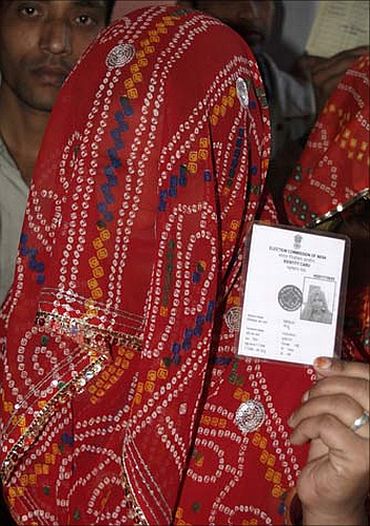
With a view to seeing some literature on the subject, I read a volume on finger impressions by Mr Henry, a police officer, from which I gathered that finger prints were required by law only from criminals." So there is a history to attempt by the state to number human beings by the imperialist powers as well.
In fact, all the indentured labour that went from India to developed countries during colonial rule were not known by their names but by numbers. So from the very outset the numbering of human beings, identifying them based on numbers, profiling them has been a very dehumanising act.
But we also have a similar exercise being undertaken in the name of the census where Indians are profiled based on their religion and caste?
It is very important to differentiate between different kinds of documentations done within India. I would respond to the question you have raised. As of now, the UID is supposed to be the 16th identity proof for the residents in India.
As for the Voters ID card, the Election Commission itself says that besides the Voters' ID cards, other documents like driving license are also valid for identification.
One is what was the compelling reason to have the 16th identity number as a proof of your being Indian when you already have 15 others that provides legitimacy to the democratically-elected government.
On the basis of these 15 documents the citizens of India become entitled to vote and make a democratic government legitimate. The DOPT's Discussion paper Draft Privacy Bill states, "There is no data protection statute in the country" in such a context why should there be an electronic register of information about Indian residents.

But one could always argue that not everybody has a ration card or a drivers' license How would you counter these arguments?
This argument will flat for having a UID number because then what happens to those who do not have hands. How will you get their fingerprints? The iris scan of many malnutritioned Indian citizens would have malformation of their iris.
Then there are a huge number of people in this country who do manual work because of which their fingerprints get washed away or get altered. So that kind of logic or argument does not hold water.
The finding of a five-year study Biometric Recognition: Challenges and Opportunities published by National Research Council of the National Academies, The National Academies Press, Washington, DC which had a panel of scientists, engineers and legal experts concludes that "Human recognition systems are inherently probabilistic, and hence inherently fallible."
The most important identification for a citizen in India is that they are part of a constitutionally elected bodies like the gram panchayat or other local self-governing institutions and these are as much constitutionally elected bodies like the government of India.
The mukhiya (the head of village/gram panchayat) identifies them as Indians. So, where is the identification a problem at the grassroots level?
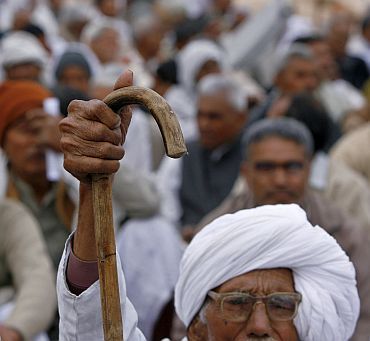
In fact, this argument is also advanced that the UID number will be a centralised number unlike your ration card or drivers' license.
There is a very important paper called draft discussion paper on privacy bill. And I must underline that this UID number is actually a privacy invasion project and the other 15 identity proofs are at a decentralised level.
UID will be the only centralised database where all the data of resident Indians will be compiled at one place. This database will be given to US companies, in particular to Accenture and L1 Identities Solution, and the latter has its employees as former members of the Central Intelligence Agency. The entire database of Indian residents will be compiled and given to these agencies to check for any security threats.
The entire effort of UID Number is convergence. Convergence of all the pre-existing data about residents in India. This convergence is an attempt to make the data of every citizen transparent.
UID Number is an architecture that will nullify the impact of Right to Information Act. RTI makes the functioning of the government transparent. UID is the government's response to its suffering from RTI applications.
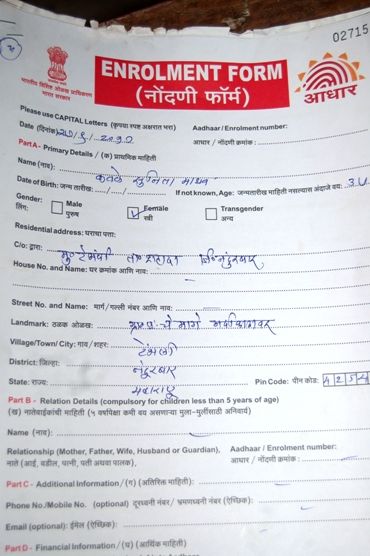
But do you think the bottom 20 per cent that forms the base of the socio-economic pyramid would care for their privacy if UID were to help them get all the intended benefits of various government schemes unlike the Indian middle class and the elite? If you think about this bottom 20 per cent the privacy argument sounds a bit elitist...
Since when has privacy become the right of only the elite? Isn't privacy a part of right to life?
During the reign of Nazi Germany and emergency in India things became quite efficient but it can't be a convincing argument that such systems are necessary for good governance.
Dictatorships work better than democracies. In democracy there is disorder, anarchy, unruly voices of the people. UID comes from a corporate-military mindset. And actually it is a corporate project supported by the government of India. UID is a Silicon Valley project.
Why wasn't transparent discussion held about these dimensions of UID with all the stakeholders? We think that UID is illegitimate and unconstitutional. The reason I so say is because on December 3, 2010 National Identification Bill was introduced in Parliament and the UID Authority became functional since January 2009 without parliamentary sanction.
And if you now critique the Bill clause-by-clause you will find it is meant to legitimise acts of the UID Authority post facto. And this problem is most eloquently addressed by one of the government's own document: the draft discussion paper on privacy.
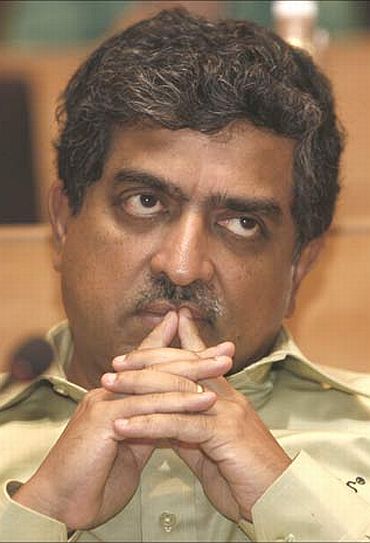
On UID Number, the Draft Paper on Privacy Bill states, "Data privacy and the need to protect personal information is almost never a concern when data is stored in a decentralised manner. Data that is maintained in silos is largely useless outside that silo and consequently has a low likelihood of causing any damage."
"However, all this is likely to change with the implementation of the UID Project. One of the inevitable consequences of the UID Project will be that the UID Number will unify multiple databases. As more and more agencies of the government sign on to the UID Project, the UID Number will become the common thread that links all those databases together."
"Over time, private enterprise could also adopt the UID Number as an identifier for the purposes of the delivery of their services or even for enrolment as a customer."
Quite menacingly, the Draft Paper on Privacy Bill asserts, "Once this happens, the separation of data that currently exists between multiple databases will vanish."
Who do you think will benefit the most out of the UID project?
Indian and Silicon Valley corporates! Assocham and KPMG did a study titled 'Homeland Security in India', which for the first time underlined the connection between UID number and National Intelligence Grid.
In fact, most importantly Nandan Nilekani has disclosed the purpose of UID number in his book Imagining India where he says that if there is a national highway one can create a national, common land market. And this common land market will lead to poverty alleviation.
It is such a hollow argument to advance for implementation of the UID number.

What is so hollow in this argument? Please explain
How does a common land market alleviate poverty? Can anyone explain that?
Wouldn't such a common land market help those who have land but no proper demarcation of their land or no proper title to their land?
Let me respond to this argument. What a common land market will do is create a futures market in land. Commodification of land has actually created food riots in 37 countries on this globe. How has it helped? How does a futures market help poverty alleviation?
Lands once commodified can be used for generating bio-fuels instead of foodgrains. So, instead of filling the belly of the poor, for which crocodile tears are being shed, one will have incentives to produce bio-fuels if the price is good. In fact, the priorities of the automobile industry precedes priority of any other industry.
So, instead of land being used to fill the bellies of the poor will be diverted for providing cheap fuel substitutes to the elite.
So, nothing good will come out for the poor out of the UID project?
Nothing. The UID project is eyewash and all its intentions of helping the poor are highly suspect because it has hidden a lot of the above-mentioned facts from the people at large. They have a lot to hide.
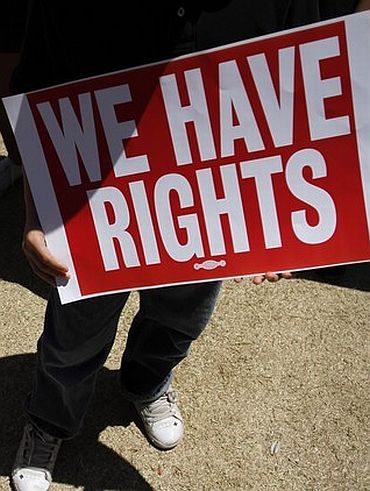
Is this just an allegation or do you have any documentary evidence to prove UID's inter-linkages with National Intelligence Grid and the NPR?
I have the entire document made by the Assocham and KPMG.
The Assocham and KPMG report says, "Given its increasing focus on Homeland security, the Government of India has initiated several steps to coordinate, consolidate and structure its approach to better manage this sector in the country and to overcome the current internal and external threats."
"One such initiative involves plans to set up a National Intelligence Grid to link all the intelligence agencies in various ministries and departments that deal with homeland security. Another significant initiative is the ongoing drive to provide a Unique Identification Number to all Indian citizens which is also aligned to the wider cause of intelligently networking the Indian ecosystem".
Forget about my contentions, the draft discussion paper of Government of India on the privacy bill is evidence enough to prove that a centralised database is enough to destroy the privacy of the citizens of India forever. Today, we in India do not have a data protection law.
Would opponents of UID be satisfied if such a law was enacted?
If at all such a law is enacted it will only be a post facto reaction to silence the critics. What we are saying is that this Bill must be looked along with other Bills like the Draft Land Titling Bill 2010 that makes a provision for a unique property identification number.
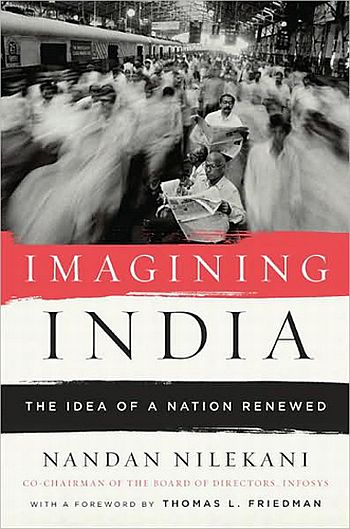
I would say that the NIAI/UID Bill is an assault on our Constitution and federalism. Let me tell you how.
The UID Authority Chairperson (Nandan Nilekani) in his book (Imagining India) has at one point said that the UID number will undo the constitutional amendment that abolished the fundamental right to property.
As of now right to property is a legal and not a fundamental right. This is an attack on our constitution. He (Nandan Nilekani) is subverting the (Indian) constitution.
The UID project also attacks the federal structure of India's polity. As I had earlier said the UID project is linked to the public information and infrastructure innovation which wants to tag every individual, every institution, every property and is an act of enabling social controls through technology.
Finally, what kind of plans do you have to oppose UID? Are you going to challenge it in a court of law?
The issue is not of going to the court. The issue is that we will expose the entire game plan of the UID authority and whosoever wants its implementation. And we have sufficient documentary evidence to expose them.
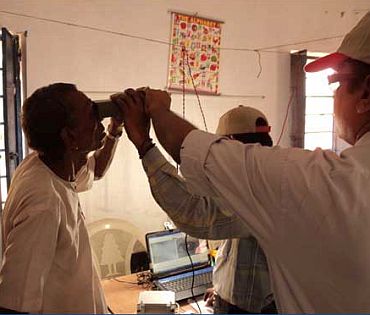
And what is this game plan?
As I said the game plan is to put every Indian resident/citizen under state surveillance forever. I agree with the statement of concern issued by the eminent citizens, including former judges, jurists, educationists stating, "UIDAI has been constituted on the basis of a GoI (Government of India) notification and there is a fundamental risk to civil liberties".
Captain Raghu Raman who is the head the National Intelligence Grid, under Union Home Ministry in his report titled 'A Nation of Numb People' says, "If the commercial czars don't begin protecting their empires now, they may find the lines of control cutting across those very empires."
He observes, "Internal security is falling apart and the bureaucracy and government know this. It's time for the corporates to step in. The idea is not as radical as it sounds."
Isn't it revealing enough? One hopes that our Parliament is still capable of dealing with such assaults on its domain. Not surprisingly, UIDAI Chairperson has failed to satisfy the Parliamentary Standing Committee on Finance in his recent presentation to them. Earlier, he had developed cold feet when National Advisory Council wished to hear him out.
It is noteworthy that even before the passage of the National Identification Authority of India Bill from Parliament, the authority has embarked upon taking biometric and demographic data of Indian residents.
It has entered into MOUs with multiplicity of institutions, including banks, LIC, state governments to acts as Registrars, setting a process by which a large amount of data about the individuals will be collected and aggregated on the files of these Registrars.

The authority has also entered into contracts with corporations predominantly from the technology and biometric industry, including those with close links with intelligence agencies in other countries: for instance, Accenture (which is working with US Homeland Security in their Smart Borders Project) and L1 Identity Solutions (whose main market, and recruitment ground, is the Central Intelligence Agency).
Their website reads: "American and foreign military services, defence and intelligence agencies rely on L1 Solutions and services to help determine ally from enemy". The same US company was hired for "Implementation of Biometric Solution for UIDAI" from 30 July 2010. Another US company, Accenture Services Private Ltd., has been hired for the "Implementation of Biometric Solution for UIDAI".
This company is "committed to helping the (US) Department of Homeland Security". Its "solutions include developing prevention tactics, streamlining intelligence gathering and maximising new technologies."
While UIDAI has been misleading the citizens and the media about the UID Number scheme being voluntary, the 'Legal Framework For Mandatory Electronic Delivery of Services' of Union Ministry of Communication and Information Technology, refers to "UIDAI-UID based authentication for services" as an enabler, thus making it compulsory.
Meanwhile, UIDAI has also hired a public relations agency with an objective to "Provide consistent flow of information across all mediums to create the right perception of UIDAI and Aadhaar throughout the country"; one such agency has created a stalemate in the Parliament.
This is an attempt to convert a resident into a number, Indian population into a market and then citizens in to subjects. The game plan is to bring our 2,50,000 Panchayats all over the country besides all the urban centres and its inhabitants under surveillance.